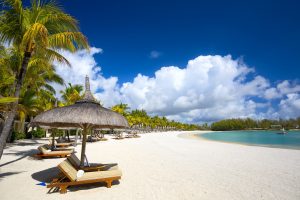Mauritius, located in the south-west Indian Ocean between Africa and Asia is a beautiful country indeed. Formerly ruled both a French and British colony, the country is home to over 300 kilometers of white sandy beaches.
 The beaches are bordered by a turquoise-colored lagoon that protects the coral reefs. Full of a bilingual multicultural population, Mauritius benefits from an all year-round tropical climate. Along with social, economic and political stability.
The beaches are bordered by a turquoise-colored lagoon that protects the coral reefs. Full of a bilingual multicultural population, Mauritius benefits from an all year-round tropical climate. Along with social, economic and political stability.
Who wouldn’t want to retire to a country this beautiful and perfect? Not only is Mauritius is a place for tourists, but it’s also perfect for expatriates as well.
So, if you want a peaceful retirement in a perfect piece of Heaven, take a look at our comprehensive guide. We’re here to help you get all the important information you’ll need to make this process go smoother.
Getting Started in Mauritius
First of all, to those who are looking to stay in Mauritius for 3 months or less, you’ll need to get a Visa. However, foreigners from the European Union do not need a Visa.
The documents you’ll need are a valid passport, a return air ticket, pocket money to cover the costs of your stay, and booking validations. A minimum of 80 euros per day is enough for those who were wondering about it.
Of course, to work, you’ll need a worker’s permit that should be valid for over 3 years. There are three types of permits available for occupation: professionals, investors, and entrepreneurs.
Finally, for expatriates who want to retire, the local authorities offer a permit that’s valid for 3 years. After the 3 years are up, you can apply for a Mauritian Permanent Residence aka PR permit, which is usually valid for 10 years.
Those First Crucial Steps
The first step upon your arrival on the majestic island is to apply for a local telephone number. This is important and necessary for your administrative procedures. There are three local providers you can choose: Mahanagar, My.T, and Emtel Telephone.
You can also buy prepaid SIM cards, but it’s best to bring identity documents and proof of address just in case. The next move is opening up a bank account.
You can do this at a local commercial bank, and this will come in handy for your future transactions. To open up an account you’ll need your latest bank statements, identity documents, copy of your Occupation Permit, and proof of address.
If you’re french and you’ve already gotten your residence permit, the next step is to register yourself at the French Embassy. You’ll get your consular registration card after you’re done.
Living Conditions in Mauritius
There are a few choices when it comes to living for foreigners. You can go look up villas for sale in Mauritius, rent property, or buy a residential property. Naturally, there are a variety of choices you can pick from.
The types of property for rent have different rates depending on the geographical location, the condition of the units, and the type of property. These could be villas, apartments, penthouses, and duplexes.
The government has set up tailor-made property schemes for foreigners who want to buy properties. There are the Real Estate Scheme, the Integrated Resort Scheme, and the Property Development Scheme.
The Job Market in Mauritius
The economy of Mauritius is known to be flourishing. Not only are they the most competitive, but they also boast a GDP of over $13 billion and a GDP per capita of over $10,000.
This alone puts the country among the top African countries, and the unemployment rate is at an all-time low at 7%. You can look for employment in the most active sectors, such as new technologies, communication, manufacturing, information, tourism, financial services, health, and renewable energy.
The sectors you need to avoid are food, beverage, and retail. So, since the labor market is well-regulated, there is no reason why they won’t hire any expats.
Amazing Health Care Benefits
Now, let’s talk about the health care system in Mauritius. The island offers a high level of health care benefits with a top-quality health infrastructure.
There are a variety of public hospitals, private clinics, and specialized medical centers. The only drawback is that there is no medical coverage via Social Security-funded bodies.
The thing you must remember is that once an expat has applied for an Occupation Permit, they will be asked to go through a series of medical tests. After the tests are done, you’ll be given your medical certificate.
The Educational System
Mauritius follows the same education system as the British do. The three major stages start with the primary level, secondary and tertiary level.
Students at the end of their secondary stage sit for a Higher School Certificate. For tertiary studies, students are given choices between a wide range of renowned universities. They include the University of Mauritius, Lycée Polytechnique Sir Guy Forget, Centre d’Etudes Supérieures de la Chambre de Commerce de Maurice, l’Ecole de Commerce Vatel Mauritius, and many more. For those who don’t know, the French Education Ministry has known to acknowledge more than 3 French private schools.
The Driving Conditions in Mauritius
You’ll be pleased to know that international driving licenses are valid in Mauritius. Of course, this includes the French driving license as well.
Although, it’s known that expats can exchange their international licenses for a Mauritian one, it’s even simpler than you might think. All you have to do is request a change at the Mauritian Police Headquarters and you’re all set.
An important side note is that Mauritians drive on the left side of the road.
Final Thoughts
An island like Mauritius just keeps attracting foreigners more and more as time goes by. It’s a very sought-out destination for travelers and for those who wish to retire in a peaceful land.
Reading our guide should help you keep in mind when you travel there and help you to successfully retire in the beautiful and serene island of Mauritius.






